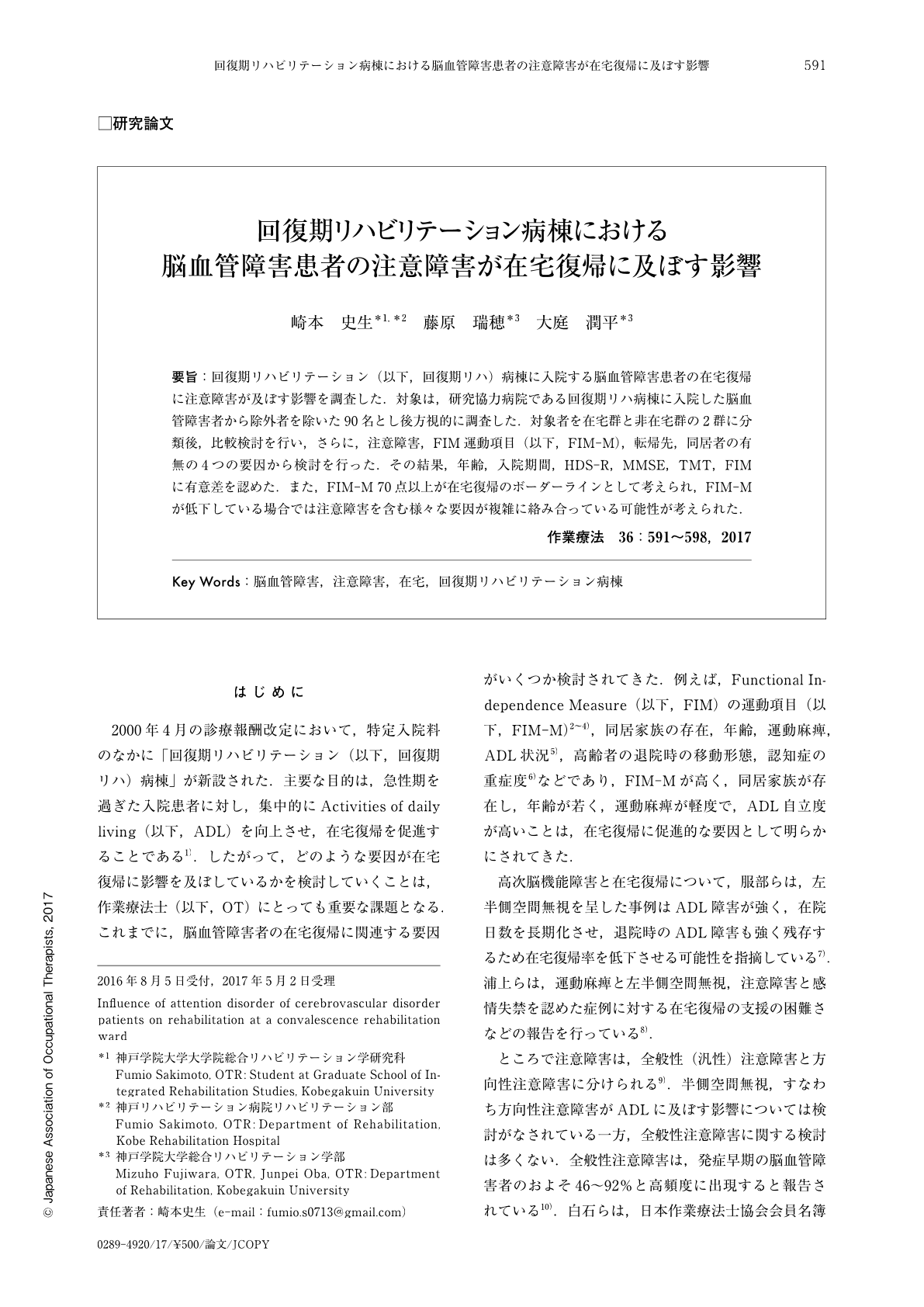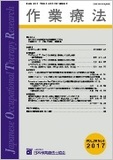Japanese
English
- 販売していません
- Abstract 文献概要
- 1ページ目 Look Inside
- 参考文献 Reference
要旨:回復期リハビリテーション(以下,回復期リハ)病棟に入院する脳血管障害患者の在宅復帰に注意障害が及ぼす影響を調査した.対象は,研究協力病院である回復期リハ病棟に入院した脳血管障害者から除外者を除いた90名とし後方視的に調査した.対象者を在宅群と非在宅群の2群に分類後,比較検討を行い,さらに,注意障害,FIM運動項目(以下,FIM-M),転帰先,同居者の有無の4つの要因から検討を行った.その結果,年齢,入院期間,HDS-R,MMSE,TMT,FIMに有意差を認めた.また,FIM-M 70点以上が在宅復帰のボーダーラインとして考えられ,FIM-Mが低下している場合では注意障害を含む様々な要因が複雑に絡み合っている可能性が考えられた.
We investigated the effect of attention disorder on returning home of patients with cerebrovascular disorders who were admitted to convalescent rehabilitation wards. The subjects were patients suffering from cerebrovascular disorders who were admitted to the rehabilitation ward in a cooperative research hospital. After excluding some of the subjects, we investigated 90 people. After classifying subjects into two groups: the home group and non-home group, the two groups were compared. In addition, four factors were considered: attention disorder, FIM-M, presence of an outgoing person and the absence of an outgoing person. The results recognize significant differences in age, hospital stay, HDS-R, MMSE, TMT, and FIM. In addition, an FIM-M score of 70 points or more was considered as a borderline for returning home, and in cases of a decrease of FIM-M, various factors including caution failure may be intertwined in a complex way.

Copyright © 2017, Japanese Association of Occupational Therapists. All rights reserved.


